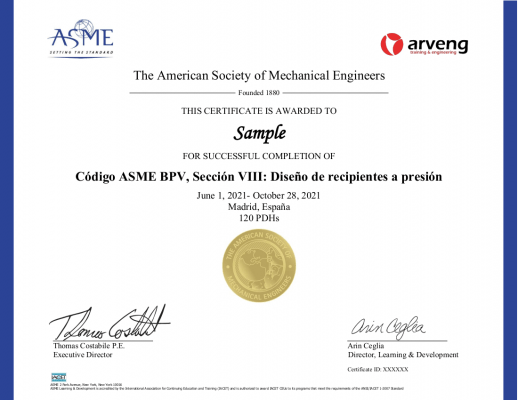IN THIS COURSE YOU WILL LEARN…
+ The terminology and the basics of inspection and repair of storage tanks.
+ To understand the organization of the applicable standards, scope, and main sections.
+ The minimum requirements for inspection, repair, and alteration of storage tanks.





 WhatsApp
WhatsApp
Samuel J.
In general terms I am very happy with the training and I have achieved the objectives I set for myself. The best of the course are the teacher’s answers and the practical cases, which are very well chosen and make you think a lot.
Patrick H.
I appreciate the opportunity to have participated in this course and to have learned a lot about this topic. The quantity and quality of the materials enrich and demonstrate the importance of this course for our personal and professional development.
Mathius P.
The content of the course is very interesting so taking the course is not difficult at all.
Simon M.
Excellent and informative course
Georgios L.
It was a nice introduction to API 653, hope to use the knowledge than i gained through this seminar
Helmi Y.
I had a wonderful time while completing this course! I enjoyed the detailed course notes that were so clear and easy to understand. I have only one comment, we need the instructor to share procedures whenever he mentions that there are procedures in the course notes and relate it to real situations. This makes the course more enjoyable. I am beyond grateful for the instructor’s time and efforts.
Kind regards
Richard K.
Excellent course. I look forward to participating in other courses being offered
Suraj K.
The course is an excellent course
Mark
It’s definitely a great course overall, from start to finish. very information and constructive.
Daniel Ruiz
In general I am very happy with the training and I have achieved the objectives I set myself. The best part of the course is the teacher’s answers and the practical cases, which are very well chosen and make you think a lot.
José Miguel
I can only say that I found the course to be perfect. It has more than met my expectations, which were to know the standard, its application and solve practical cases to put into practice what I had studied.
Cesar
Introductory course to the API653 standard very complete, correct duration of the course in which you can acquire without a doubt the fundamental and basic knowledge. Highly recommended.